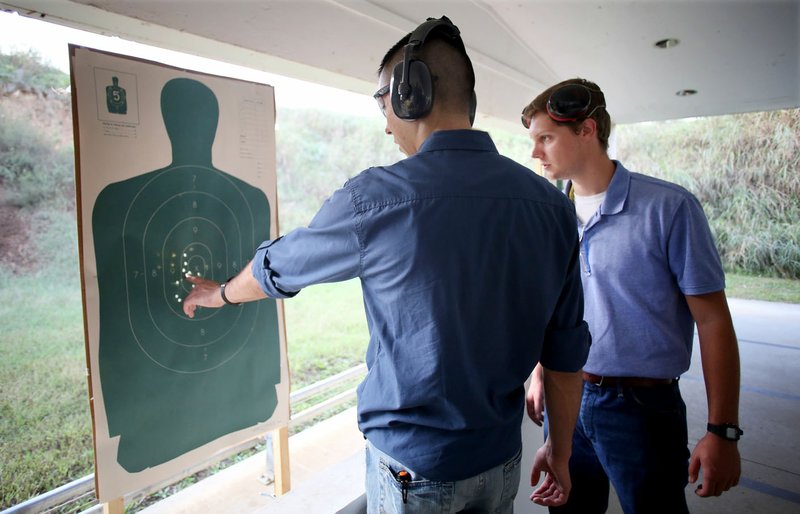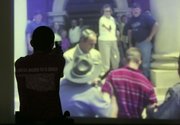FAYETTEVILLE -- Cpl. Patrick Hanby had no plan to become a police officer.
He was a political science and sociology major at the University of Arkansas in 2008 headed for law school. His adviser suggested a law enforcement internship through the Sociology and Criminal Justice Internship program.
He thought it would just be a good resume builder, but it turned out to be much more.
"You get to see every single aspect of the department. I enjoyed the work," he said. "It came down to, do I want to practice law or do I want to "practice" law. And I'd rather do it here than anywhere."
Hanby was hired by the Fayetteville Police Department in 2009.
Internship programs have proven an especially valid recruitment tool for Fayetteville and the Washington County Sheriff's Office. They have long partnered with the University of Arkansas, and the program has grown substantially since six interns were placed in 2008 when Christopher Shields, a criminal justice professor, took it over.
About 100 juniors and seniors majoring in criminal justice or sociology are placed at one of about 60 workplaces a year. About 25 percent are in police departments or sheriff's offices. Most organizations involved will attend an internship and job fair hosted by the university's Criminal Justice Honor Society.
Interns earn three hours of credit in exchange for 180 hours of work plus written assignments and some classes during a semester.
Shields has formalized the process with mandatory resume reviews at the Career Development Center and making students narrow their applications to two agencies.
"Really, a lot of them don't know what they want to do," he said. "It's a huge commitment to take a career path. And I wish the program had been stronger when I was in college here."
Shields said his passion for internships stems from changing his career and believing that wouldn't have happened and he would have saved time and money if he had been an intern.
As with many professions, these types of hands-on experiences have become more competitive as more agencies require degrees and prior experience, he said.
"Police officers with college degrees tend to make fewer mistakes. I know that's why there's a push," he said.
Many students thinking about law enforcement want to work for the FBI until he reminds them three years of work experience is required. Many reluctantly take internships at local agencies and love it, he said.
"They realize these guys are actually helping people on a daily basis," he said. "They change people's mind about doing law enforcement."
Eli Hobbs was an intern at the Washington County Sheriff's Office this past spring. He finished the program in May with 140 more hours than required -- and said he loved every bit of it. He was recently hired and is working on becoming certified while finishing his criminal justice degree online.
Though he eventually hopes to work in federal law enforcement, Hobbs said he plans on staying at Washington County for awhile.
"I love the people here and the environment. The whole atmosphere is built on being professional but also family and being a part of each other's lives," he said. "More so than just a job, it's a lifestyle."
Training Sgt. John Wood is over the county internship program and usually takes four students a semester.
"The whole purpose of this program is to do two things. First, it's to give them a big, broad brush of what police work is actually about. As opposed to lip service, they are actually out there observing, doing, questioning," he said. "Second, we are also very fortunate that we are a catalyst for other agencies. It's funny though, because a lot come back here."
And then, some decide law enforcement isn't for them, which saves both the individual and police department time and money, officers said.
NW News on 10/08/2017


